
Calcium is one of essential minerals, necessary for healthy body and its functionality. This mineral is also important for strong and healthy teeth and bones. However, under certain circumstances, too much calcium can accumulate in different parts of the body and cause health problems. Joints are very commonly seen to be susceptible to accumulation of calcium salts, but this can also happen in arterial walls, heart valves, middle ear, eyes, skin, kidneys, gall bladder and some glands or inside the brain or nerve sheaths.
The process of buildup of insoluble calcium salts in the joints is known as calcification. As a result of this problem, patients may experience restricted movements and also significant amount of joint pain, giving rise to arthritis. Deposits may also bring the surfaces of two joint together and cause their fusion (ankylosis). This process is not painful but the person is unable to perform any movement in the joint.Causes of Calcifications in Joints
Exact causes of joint calcifications are still unknown, but there are several factors known to contribute to development of this condition. Changes in the absorption of calcium in the body are found to be the most important factor, usually caused by hormonal imbalance or too much vitamin D in the body. Vitamin D promotes absorption of calcium, but excess amount of it is known to lead to hypercalcemia (increased level of calcium in the body) and calcification of the joints.
Problems in the functioning of the thyroid and parathyroid glands, as well as low level of magnesium and vitamin K in the diet are also known to lead to hypercalcemia and buildup of calcium in different parts of the body.
Although it might seem so, too much calcium taken by the food is not able to end up in joints, but it usually gets excreted in the feces. Most of patients with calcium buildup in the joints are deficient in calcium, in the same way as people who are losing their bone mass.
How to Treat This Condition?
Underlying causes of calcifications in joints will determine the treatment methods for this condition. Anti-coagulant (blood thinner) medications and anti-inflammatory drugs may be very useful for these patients. If you are taking some calcium supplements, use calcium lactate or calcium citrate, because they are more easily absorbed. Make sure to divide the dose you are taking and avoid using all your calcium in a single dose.
Severe cases of joint calcification may need to be treated with surgical removal or hemodialysis. However, these treatments cannot guarantee that the deposits will not appear again sometime in the future.
- medlineplus.gov/ency/article/000421.htm
- medlineplus.gov/lab-tests/calcium-in-urine-test/
- Photo courtesy of Adert by Wikimedia Commons: commons.wikimedia.org/wiki/File:Joint-it.png


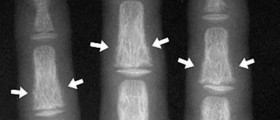

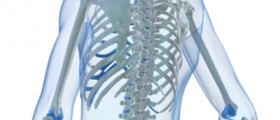

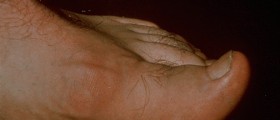







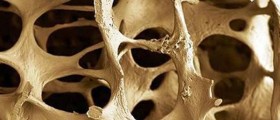
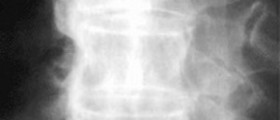

Your thoughts on this
Loading...